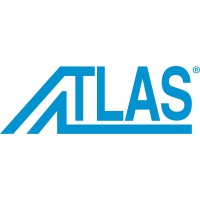
ATLAS®
Known as rivet nuts or blind threaded rivets there are three main types: SpinTite®, MaxTite®, and Plus+Tite® fasteners. The SpinTite types are used for most applications where strong threads are required for blind applications. They are installed from one side using a spin/spin technique. In addition to high thread strength and torque-out, these fasteners have minimal inventory requirements since each size can accommodate many grip ranges (material thickness). The heavy duty MaxTite® types are designed for the most demanding applications. They are installed from one side using a “spin/pull” technique. The blind Plus+Tite® inserts feature a slotted body that folds into four petals upon installation, gripping the backside of the parent material. These inserts can be installed into single, variable, or multiple thickness materials. Typical industries that use blind threaded rivet technology: - Appliances - Automobiles and accessories - Aviation and aerospace - Electronics - Food service equipment - Furniture/fixtures/signs - Industrial equipment - Lawn and garden equipment - Lighting - Marine/boating - Medical equipment - Military equipment - Recreational equipment - Trucks and trailers






